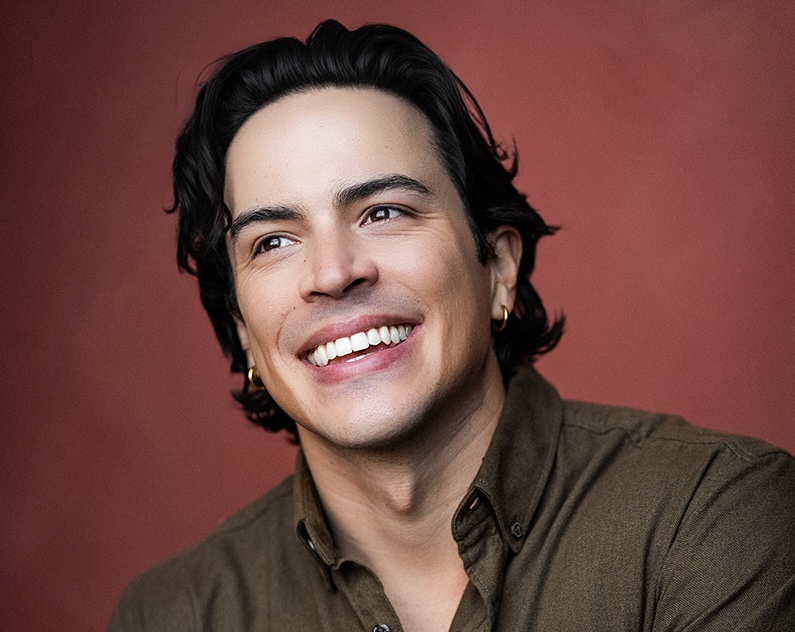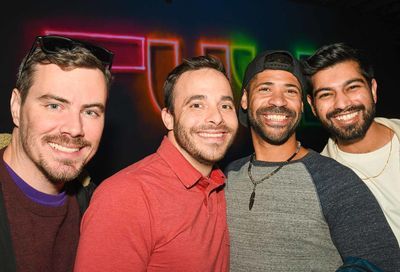Review: Sally Captures the Brilliance and Burden of Sally Ride
National Geographic’s Sally Ride documentary celebrates the trailblazing astronaut’s career and her 27-year relationship with Tam O’Shaughnessy.

America’s first female astronaut to be launched into space, Dr. Sally Ride withstood the pressures of being first, including untold amounts of ignorant, sexist hostility and public scrutiny. She understood the risks and responsibility that rested on her confident shoulders. And Sally, a new National Geographic documentary, recounts much of her experience in unflinching detail.
Director Cristina Costantini (Science Fair) dives right into the whirlwind of press and public hoopla that accompanied the buildup to, then glowing success of Ride’s first launch in 1983, aboard the space shuttle Challenger.
There’s Sally on Sesame Street, on talk shows, magazine covers, and every possible news broadcast, being interviewed by a who’s who of dearly departed TV icons, wondering when she plans to have babies. Asked about the relentless press coverage, while, of course, at a NASA press conference, Sally puts it plainly: “I think it’s too bad that our society isn’t further along, and this is such a big deal.”
No doubt, it would have been an even bigger deal if anyone outside Sally’s closest circle of friends knew then that she was romantically partnered with a woman, scientist Dr. Tam O’Shaughnessy. “We didn’t plan to hide anything,” O’Shaughnessy says in the film, the first major public platform to give voice to her truth about the nearly 30 years she and Sally spent together before Ride died in 2012 of pancreatic cancer.
O’Shaughnessy reveals that the hiding took a toll on her emotionally, but it was not so for Sally. Keeping their relationship secret didn’t eat at Sally in the same way, she insists. Looking back on their life, her recollections illustrated through photos, home movies, and evocative, dialogue-free dramatizations, she recounts their love story.
In parallel, Sally, in archival footage and interviews, tells her own story as a physics whiz who applied to be an astronaut after NASA decided in 1976 to expand the training program to include women and minorities. She was accepted and entered the class of 1978 alongside five other women.
Along both tracks, professional and personal, the film flows compellingly, supported by awesome, if brief, shuttle launch and training footage, and interviews with the most intimate figures in Sally Ride’s life. Steven Hawley, Sally’s fellow astronaut and member of the 1978 training class, as well as her husband from 1982-87, reveals when he understood that their marriage couldn’t last.
Another former crew member, a man, admirably fesses up to being part of the culture that made it harder for women at NASA, while one of Sally’s fellow former trainees, a woman, talks of how they “downplayed” their femininity in the hopes of being left alone to do their jobs.
Among the most compelling interviews, Sally’s mother Joyce Ride and her two-year-younger sister Bear Ride provide intriguing insight into Sally the person, though the film’s attention to those familial relationships feels underdeveloped. Bear, it so happens, is also lesbian with a partner, and the couple’s coming out resulted in both losing their jobs as ministers in the Presbyterian Church.
According to O’Shaughnessy, Bear wanted to talk openly with her sister about their similar lives, but Sally, so rigidly closeted, refused to engage in that discussion. That episode might be the most revealing about how intensely private Sally was, and, unfortunately, believed she needed to be in order to be accepted in her field and in the world.
On her deathbed, she granted O’Shaughnessy the freedom to tell the world what they meant to each other. Thus, it was only in Sally Ride’s obituary that the public learned that for 27 years she had lived with and loved a woman whom she’d never felt free enough to love out loud.
Sally (★★★★☆) is airing on National Geographic (check your local listings), and is available for streaming on Disney+ and Hulu. Visit www.nationalgeographic.com/tv or www.hulu.com.
Support Metro Weekly’s Journalism
These are challenging times for news organizations. And yet it’s crucial we stay active and provide vital resources and information to both our local readers and the world. So won’t you please take a moment and consider supporting Metro Weekly with a membership? For as little as $5 a month, you can help ensure Metro Weekly magazine and MetroWeekly.com remain free, viable resources as we provide the best, most diverse, culturally-resonant LGBTQ coverage in both the D.C. region and around the world. Memberships come with exclusive perks and discounts, your own personal digital delivery of each week’s magazine (and an archive), access to our Member's Lounge when it launches this fall, and exclusive members-only items like Metro Weekly Membership Mugs and Tote Bags! Check out all our membership levels here and please join us today!

























You must be logged in to post a comment.